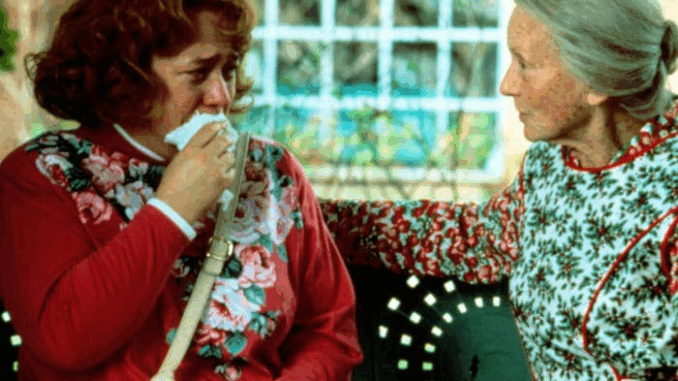
When Fried Green Tomatoes was released in 1991, Hollywood was still hesitant to portray same-sex love directly. Yet beneath its gentle storytelling and Southern charm, the film carried a quiet but powerful resonance for the LGBT community. Through the bond of Idgie Threadgoode and Ruth Jamison, the movie offered representation, hope, and a sense of belonging at a time when queer stories were rarely told.
1. Representation in a Time of Silence
In the early 1990s, openly queer characters were almost invisible in mainstream cinema. While the film avoided explicitly labeling Idgie and Ruth’s relationship, their love was clear to many viewers. For LGBT audiences, it was a rare moment of recognition—seeing two women build a life together, raising a child, and creating a safe haven in the Whistle Stop Café.
2. A Story of Chosen Family
The idea of chosen family is central to queer life. Idgie and Ruth create their own home, supported by friends like Sipsey and Big George, outside of traditional norms. This reflects the way many LGBT people build communities of love and care when society denies them acceptance.
3. Healing Through Love and Resilience
Their story is not without hardship—Ruth escapes an abusive marriage, and together they face the prejudices of their time. Yet their resilience and devotion to one another became a source of inspiration for LGBT viewers, showing that love can be both healing and revolutionary.
4. Opening Conversations
Though the film did not explicitly present itself as a “lesbian love story,” it sparked conversations about queer subtext, representation, and censorship in media. For many, it was a starting point to question why Hollywood often erased or softened queer relationships, and it helped pave the way for more honest depictions later on.
5. A Legacy of Quiet Courage
For today’s LGBT community, Fried Green Tomatoes stands as a reminder of how far representation has come—and how powerful it was to see even coded portrayals of same-sex love decades ago. Its subtle courage continues to resonate, offering both nostalgia and appreciation for a story that gave visibility when it was needed most.
Why It Still Matters
Fried Green Tomatoes may not have been an overtly queer film, but for the LGBT community, it was a lifeline—a story that said love between two women could be tender, enduring, and worthy of celebration. Its deep value lies in the hope and recognition it provided, and in the way it opened doors for future generations of queer storytelling.
